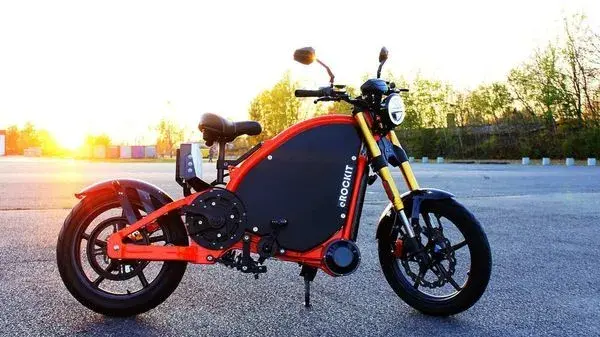2manyoranges
Old School Grand Master
- Feedback
- View
Gosh a lot in there. I agree absolutely with your ‘enforcement’ imperative - a lot of dangerous nonsense could be stopped simply by enforcement of existing laws...and yet I fear that the latest crime-triage processes adopted by police will mean that anarchy on electric-assisted vehicles will continue in perpetuity.I don't necessarily favour the current limit, that's just what the law is currently in the UK. I do agree with the spirit that an ebike should still be, at its core, a bicycle first. This allows it to integrate on cycle paths, and with mainstream bikes. Personally, I would like to see the assistance limit go up to 20mph or so, as this is close to what a moderately fit cyclist could achieve and sustain on a road bike on a cycle path. Any more however, and it starts to get hairy if the user is not skilled (read trained) to handle the machine they're using.
I have nothing against the existence of low(ish) powered electric mopeds either, but I feel they should require registration and insurance, and should not be allowed on cycle or footpaths, as the greater speed they are capable of makes them dangerous to other path users. I think I'm saying the same as a lot of others are really, but I also stand by my point that the type of hooligans riding derestricted ebikes and/or electric mopeds in an irresponsible fashion are not going to be deterred by attempting to integrate surrons or ebikes with other powered transport. Greater policing/enforcement is required to stop this kind of behaviour.
There are a few target audiences for ebikes:
Firstly, making cycling accessible to those who otherwise couldn't/wouldn't participate. Either unfit, elderly or disabled people, for example. This is where pedal assist ebikes shine.
Secondly, as an alternative to combustion engine travel. This is where non-cyclists are tempted out of cars by ebikes or electric mopeds. The example is, 'you don't need to put on silly lycra or arrive all sweaty, as the bike helps you out.' Or an electric cargo bike having the space to transport luggage that a normal bike couldn't. Or an electric moped could beat the traffic without you having to exercise at all.
Thirdly, for the mountain bikers, ebikes can be an alternative to uplift days, or just generally be a way to get more runs in in a day by taking the edge off the climbs.
As a part Downhiller and with a DH Grom of high skill, I do feel a hypocrit, since we use lift uplift in the Alps a lot. And who knows if the electricity for running the lifts comes from renewable sources or from burning kittens or such. But even so, this feels different from using an e-bike in the wild when one could just as easily be using a Normal Bike. The ever-giving USA Land of the Free of course has some of the most restrictive wilderness regulation in the world, and it IS enforced, most often:
https://www.trekbikes.com/us/en_US/...ervice, Bureau of Land,use are open to eMTBs.
which simply means no e-bikes, even for the more elderly mountain-bike who might eventually use an e-bike or otherwise not get out at all…
Oh this is all so HARD….and very difficult to invoke or establish principle.
Here goes
Principle 1 if you would just be a wee bit slower, then use a Normal Bike
Principle 2 if it’s simply just a bit easier on an e-bike, then use a Normal Bike
Principle 3 if you REALLY CAN‘T use a Normal Bike due to infirmity or injury, then use an e-bike
Principle 4 if you would otherwise be using a car for the journey, then use an e-bike
Principle 5 if you are not sure about any of these boundaries, then use a Normal Bike
In hearing that we are certainly will miss the 1.5 deg C target, I still have deep misgivings about the additional resources needed in e-bikes.…as I outlined in earlier posts….

